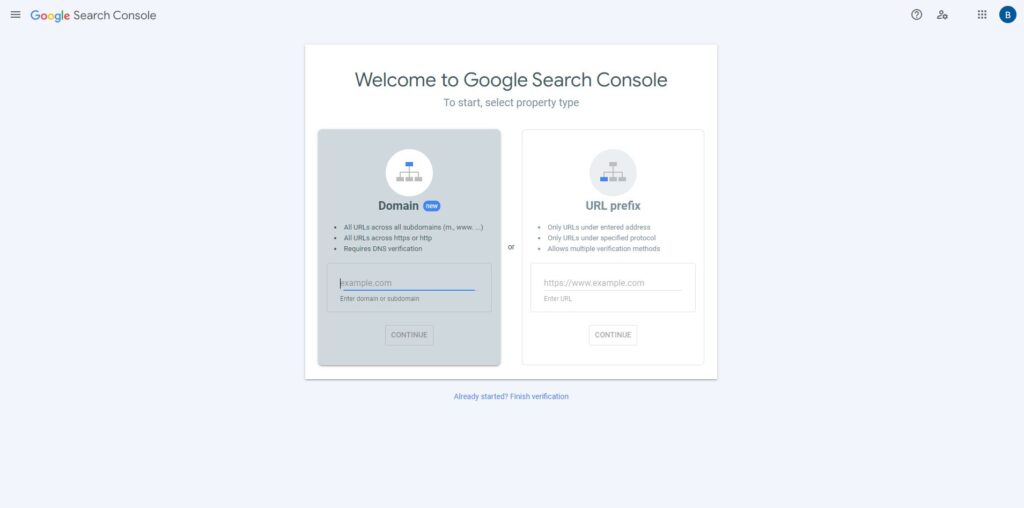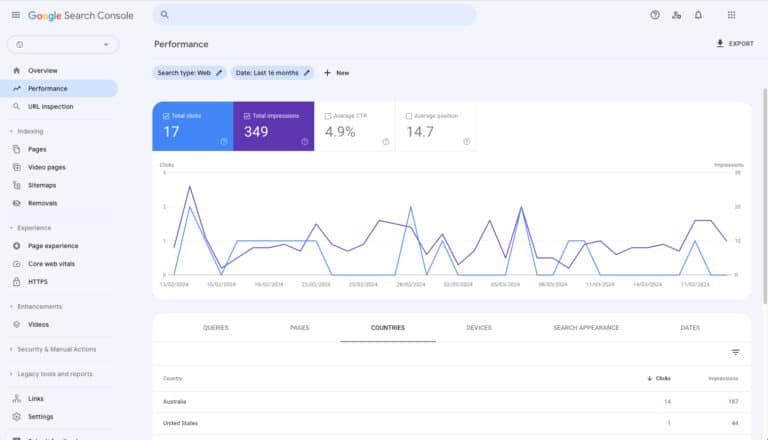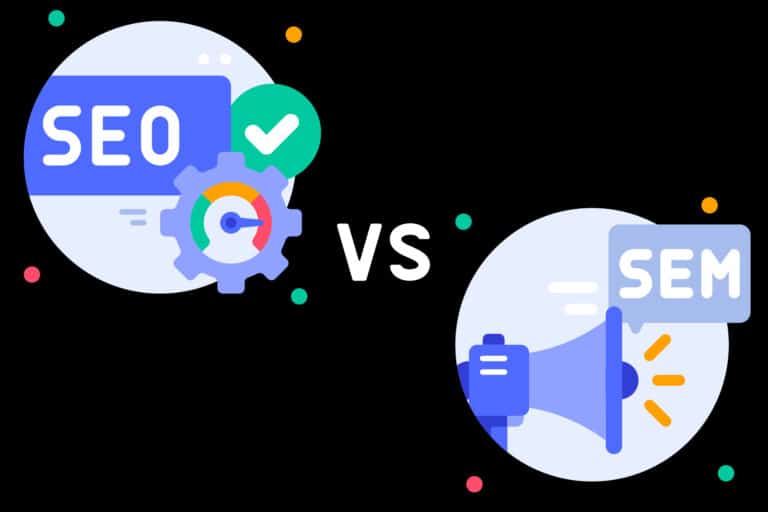As an SEO specialist and business owner, I frequently engage in conversations with local business owners regarding their online presence and marketing strategies. Most of these business owners already possess a basic understanding of how online marketing works and many have previously collaborated with digital marketing agencies.
Despite this, there seems to be a big knowledge gap in the simple steps of just assessing if their website is on Google, and if it is presented and performing the way they want it to.
This blog post is to act as a guide for these local business owners, helping them through the first essential steps in evaluating their website visibility and performance on Google’s search index.
Firstly, Why Google? Isn't It Just The Internet?
Google is a renowned search engine that plays a pivotal role in organising and making information accessible on the vast expanse of the World Wide Web. While the internet is a global network of interconnected websites, Google serves as a gateway that facilitates navigation through this digital realm. The bottom line is, Google is its own private website that simply catalogues unique resource locators (URLs) it finds on the World Wide Web in a massive database known as the Google search index.
Let’s go deeper…
Google builds its index by employing web crawlers, commonly known as Google bots, which systematically traverse the internet, indexing and analysing websites’ content. The index serves as a repository of information, allowing Google’s search algorithm to swiftly retrieve relevant results when users conduct searches.
Google’s search algorithm is a complex and ever-evolving system that evaluates and ranks web pages based on various factors.
Taking up 94% of the search engine market share in Australia, Google is an incredible platform that we utilise as business owners to build our online brand and presence for people to find us.
1. Is My Website In Google's Index?
Remember that being indexed by Google is a crucial step in ensuring your website’s visibility in search results. There is a quick check you can do to see if your website has been catalogued:
- Open a web browser and go to the Google homepage.
- In the search bar, type “site:yourwebsite.com” (without quotes), replacing “yourwebsite.com” with your actual domain name. Hit “Google Search”.
If Google has indexed your website, you will see a list of web pages from your site displayed in the search results. This indicates that the pages of your website have been crawled and included in Google’s search index.
You can browse through the search results to see which pages are currently indexed and appearing in Google’s search results.
If your website shows up in the search results, it means that Google has successfully discovered, crawled, and added your web pages to its index. This is a positive sign as it implies that your website has a presence in Google’s database and is eligible to appear in search results when users look for relevant information.
If your website does not appear in the search results when using the “site:” operator, it could indicate that Google has not yet indexed your site or is experiencing issues accessing it. Possible reasons for non-indexing include:
- recently launching a new website
- having a robots.txt file that blocks search engine crawlers
- or having a noindex meta tag on your pages
If your website is not indexed, you can take steps to ensure that Google can access and crawl your pages. Make sure your website is properly set up with a sitemap and a robots.txt file that allows search engines to index your content.
If you recently launched your website, just know that Google’s crawling and indexing process can take some time, especially for new or less established websites. The next step is to advance this process.
2. How Do I Manage My Webpages In Google's Index?
Google Search Console is a free web service provided by Google that offers essential functionalities for website owners and webmasters. It allows users to monitor and manage their website’s presence in Google Search results.
Some of its key features include submitting sitemaps to aid in indexing, checking for indexing errors, viewing search analytics to understand user queries and performance, identifying and fixing crawl issues, and receiving security alerts for potential website threats.
If you haven’t already, sign up for Google Search Console.
Click on the “Start Now” button and follow the steps to add and verify your website property. You can verify ownership through various methods, such as adding an HTML tag to your website’s header or using Google Analytics.
Once your website is verified in Google Search Console, log in to your account and in the left sidebar, navigate to “Index” and then click on “Coverage.”
The “Coverage” report provides an overview of the indexed pages on your website and any potential issues that Google encountered during the indexing process. The report is divided into four categories: “Error,” “Valid with Warnings,” “Valid,” and “Excluded.” The “Valid” category includes pages that have been successfully indexed, while the other categories may indicate potential problems.
Google provides you with all the necessary feedback and instructions on how to resolve any issues. Submit your website, then it’s sitemap to see if there are any coverage concerns. Google has extensive documentation on how to use Search Console if you’d like to take it a step further.

3. I've Heard of Google Analytics. What's The Difference?
Google Search Console and Google Analytics are two powerful tools offered by Google, each serving different purposes to help website owners and digital marketers gain valuable insights and optimise their online presence.
Google Search Console
Google Search Console (formerly known as Google Webmaster Tools) is primarily focused on providing data and tools related to a website’s presence in Google search results. It offers various functionalities to monitor and improve how a website performs in organic search:
Indexing and Crawling: Search Console allows users to submit sitemaps, check which pages are indexed, and identify and fix crawling issues that might hinder Googlebot from accessing and indexing content.
Search Performance: Webmasters can view search analytics data, including clicks, impressions, click-through rates, and average position for specific keywords and pages, offering valuable insights into user behaviour and search performance.
Technical and Security Issues: The tool alerts website owners about potential security threats, manual penalties, and other technical issues affecting the site’s search rankings.
Google Analytics 4
Google Analytics 4, on the other hand, is primarily focused on tracking and analysing user behaviour on a website. It provides in-depth insights into various aspects of user interactions, helping website owners understand how visitors engage with their site:
User Behavior: Google Analytics tracks pageviews, bounce rates, time on site, and other metrics, enabling users to understand how visitors navigate through the site.
Audience Analysis: It offers demographics and interests data, providing information about the characteristics of the website’s audience.
Acquisition Channels: Google Analytics shows which channels (organic search, paid search, social media, etc.) are driving traffic to the website.
Conversion Tracking: Users can set up and track goals, events, and e-commerce transactions to measure the website’s effectiveness in driving desired actions.
Both tools complement each other, offering valuable insights to help website owners make data-driven decisions, optimise their sites, and improve overall performance and user experience.
4. How Do I Improve My Website's Performance On Google?
Online presence refers to the visibility and existence of a business or individual on the internet, while online performance refers to the effectiveness and efficiency of digital activities in achieving business goals (sales, experiences, awareness, etc.).
Improving a website’s online performance is a critical goal for any business or individual with an online presence. It involves a comprehensive approach to enhance various aspects of the website, ultimately leading to better user experiences, increased traffic, and improved conversion rates. Improving the organic online performance also complements the investments you may make in marketing and advertising through other platforms too.
What is Search Engine Optimisation?
Search Engine Optimisation (SEO) is the practice of improving a website’s visibility and ranking organically in search engine results pages (SERPs).
It is an essential part of your digital marketing as it helps potential customers find your website when searching for products or services related to your business without paying per click.
SEO encases ongoing improvements to your:
- Overall online presence – socials, external business listings, digital PR, etc.
- Google Business Profile
- Website user experience (UX)
- Website code and structure
- Website content
- Website indexability
Let's Chat Search Engine Optimisation
As mentioned at the beginning, I’m an SEO specialist and making sure a website is discoverable, appears and performs well on Google is my forte!
Establishing and maintaining a strong online presence is paramount in today’s digital landscape. The foundational steps in this article can significantly impact a business’s online success, influencing the website’s visibility, traffic, and ultimately, business growth (more sales, more bookings, more calls!).
I believe that every business owner should be equipped with the knowledge and skills to perform their own online marketing, or at least understand what professionals they’ve hired are doing. At 5 Twelve, we’ve made a pledge to remain transparent, innovative and results-driven when providing SEO services to our clients. If you’d like to chat with me or my team, please enquire online today.





